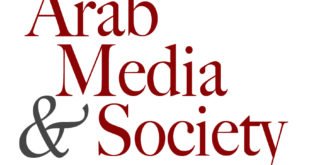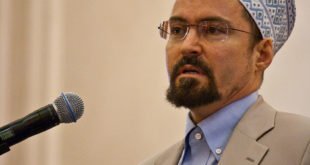The recent profusion of graphic televised footage of dead bodies, sometimes charred or disfigured, has raised difficult ethical and journalistic decisions for news editors, whether at CNN or the Hizbullah-backed Lebanese channel Al-Manar. In a series of interviews, news editors talk about their decision-making policies on screening disturbing images. The …
Read More »The Best Hope for Democracy in the Arab World: a Crooning TV “Idol”?
It is a perfect summer evening in Damascus; a cool wind sweeps in from the desert, soothing scorched pavements and carrying the smells of strong coffee and cured meat from roadside stalls up into the clotheslines and concrete hulks of the Syrian skyline. Normally the city's streets would be packed …
Read More »Arab Satellite Coverage of US Elections
The US presidential election of 2004 attracted an unprecedented amount of international media attention, perhaps nowhere more so than in the Arab world, where the impact of American policy has made itself acutely felt in the three years since September 11. Concerns over the war in Iraq, combined with frustration …
Read More »The Dark Desert Night is Alight: The Impact of War Visuals on Television Viewers and Print
This paper was presented at the Broadcast Education Association's annual convention in April 2004, where the author participated in a panel organized by the association's International Division. The dark desert night is alight with streaks of blue and red streaming across the sky. A mosque is the symbol-laden backdrop for …
Read More »Not Every Picture Tells a Story: A Death in Falluja
This article first appeared in The New York Times. All of life seems to be about denial--the denial of death, the denial of reality, the denial of everything that is convenient for us to deny. Photography, because of its causal relationship to the world, seems to give us the truth or …
Read More »Two Entertainment Issues Preoccupy Egyptian Press in Ramadan
Reprinted from Al Hayat, 7 November, 2004, p.21, with permission. This year's Ramadan brings in its train, as usual, hundreds of serialized dramas, talk shows, and other standard format programs of the sort that increase year after year as a result of the burgeoning number of Arab satellite channels. What is …
Read More »Al Jazeera Update: More Datelines from Doha and a Code of Ethics
In a fast-changing world, easy observations remain in consciousness long after they have become invalid. So it is with the conceit that Al Jazeera put Qatar on the map and not visa versa, or the variant that Al Jazeera is more important as a regional power than the State of …
Read More »On a Journey with Hamza Yusuf
Hamza Yusuf Hanson was born in Walla Walla, Washington, and raised in northern California. He became Muslim in 1977 in Santa Barbara, California and subsequently moved to the Middle East and studied Arabic and Islam for four years in the United Arab Emirates and later in Medina, Algeria, Morocco, and …
Read More »US International Broadcasting Strategies in the Arab World: An analysis of the Broadcasting Board of Governors’ strategy from a public communication standpoint
The US government has devised a plan to repair its image in the Arab World. This plan includes generously-funded, government-sponsored international broadcasting, known in the past as Voice of America or Radio Free Europe. Today, under the guidance of the Broadcasting Board of Governors (BBG), two new programs have been …
Read More »Reaching the Arabs through Alhurra: US Chooses Easy Way Out?
After comprehensive investigations by expert panels, US public diplomacy officials have succeeded in figuring out why US public diplomacy targeting the Arab world have failed: it is the Arab media and more specifically the pan-Arab television channels, with Al Jazeera as the main culprit. In his State of the Union …
Read More » Arab Media & Society The Arab Media Hub
Arab Media & Society The Arab Media Hub


